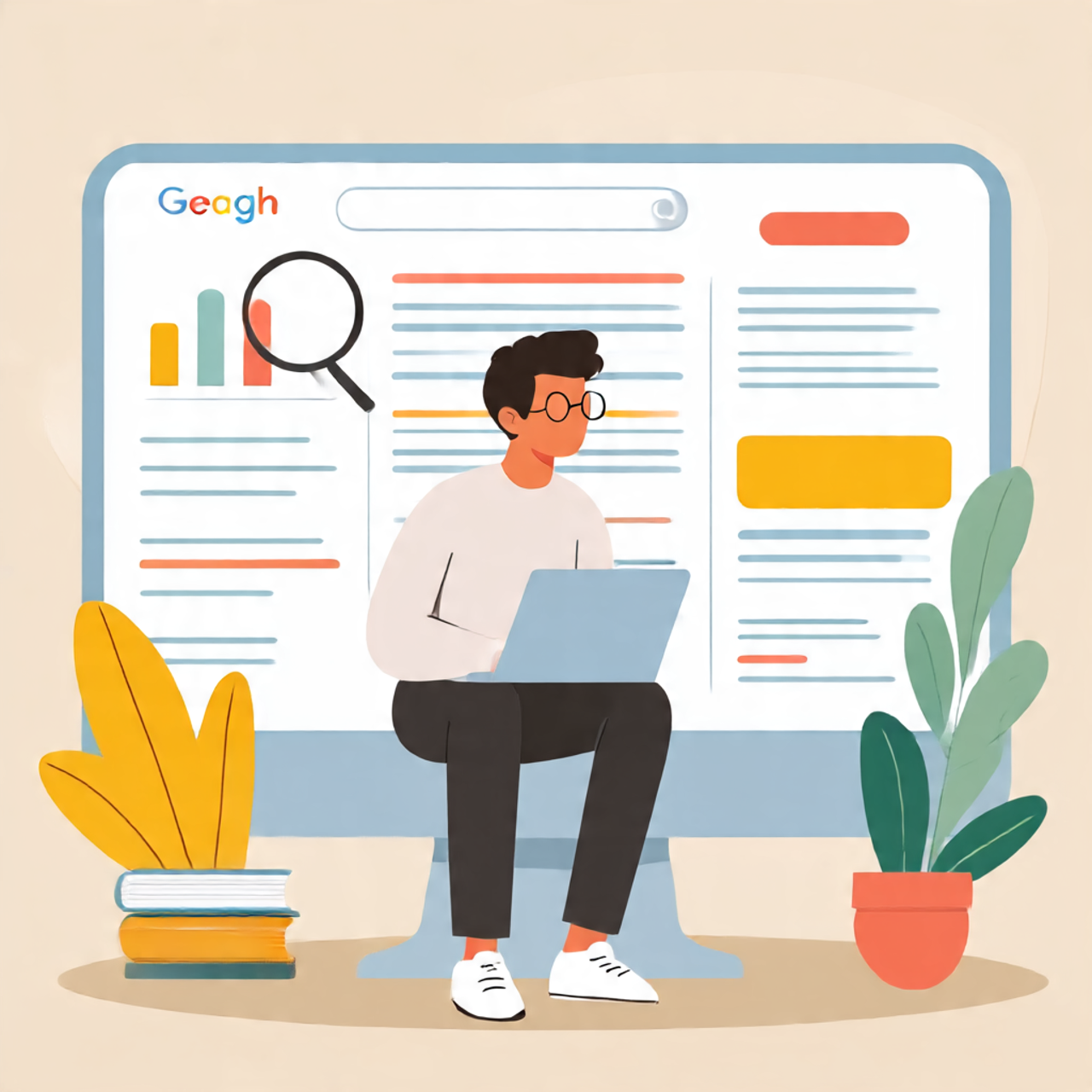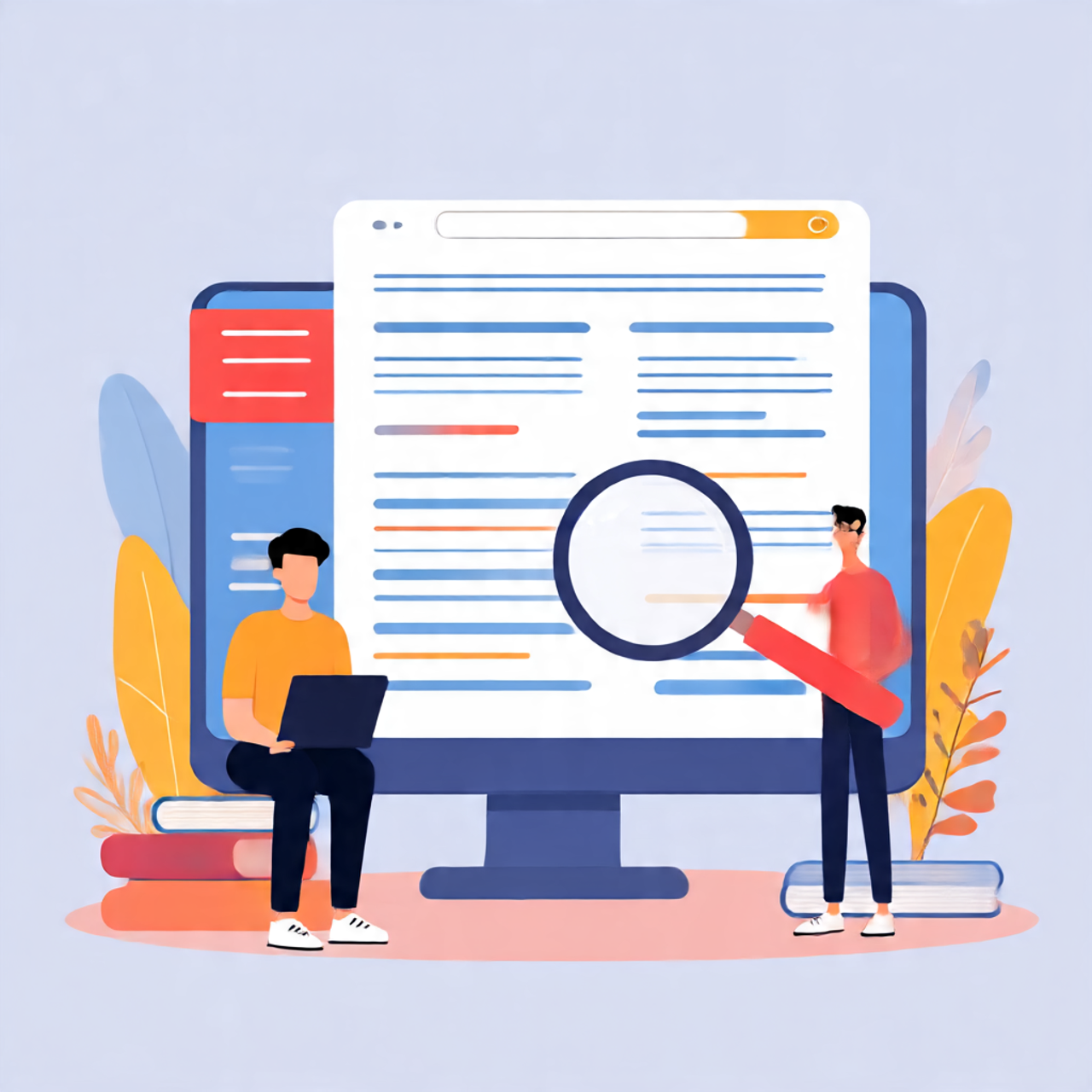
15 AI Tools & Tactics SEO Pros Use to Improve Rankings
Discover 15 powerful AI tools and tactics SEO professionals use daily to boost rankings, automate research, and create content that actually ranks in 2026.

Search engine optimization has changed dramatically over the past few years. What used to take hours of manual research and guesswork now happens in minutes, thanks to artificial intelligence. SEO professionals aren't just using AI as a novelty anymore. They're leveraging it as a core part of their workflow to stay competitive in an increasingly complex landscape.
The reality is that AI tools for SEO have become essential for anyone serious about improving their search engine rankings. From automating keyword research to analyzing competitor strategies, these tools help you make smarter decisions faster. But here's the thing: not all AI tools are created equal, and knowing how to use them strategically makes all the difference.
This article breaks down 15 specific AI tools and tactics that working SEO professionals actually use to improve rankings. These aren't theoretical concepts or distant possibilities. These are practical, proven strategies you can implement today. Whether you're managing your own site or working with clients, you'll find actionable insights on AI-powered SEO techniques, content optimization, and competitive analysis that can transform your approach to search visibility. Let's get into what's actually working right now.
Understanding AI's Role in Modern SEO
Before jumping into specific tools, it's worth understanding why AI has revolutionized SEO. Traditional optimization required manual data analysis, educated guesses, and a lot of trial and error. AI changes this by processing massive amounts of data instantly, identifying patterns humans might miss, and predicting what will likely work based on historical performance.
Machine learning algorithms can now analyze thousands of top-ranking pages, extract common patterns, and suggest optimizations with surprising accuracy. This doesn't replace SEO expertise, but it amplifies it. The professionals who combine strategic thinking with AI capabilities are the ones seeing the best results.
1. ChatGPT for Content Ideation and Outlines
ChatGPT has become one of the most versatile AI tools in an SEO professional's toolkit. While many people use it for writing full articles (which can be risky for quality), smart SEOs use it for content ideation and creating detailed outlines.
Here's how it works in practice:
- Generate dozens of content ideas based on target keywords
- Create detailed article outlines that cover all relevant subtopics
- Identify questions your target audience is actually asking
- Brainstorm unique angles for saturated topics
The key is using ChatGPT as a starting point, not an ending point. You still need human expertise to validate ideas, add original insights, and ensure accuracy. But for speed and volume of ideas, it's hard to beat.
2. Surfer SEO for On-Page Optimization
Surfer SEO analyzes top-ranking pages for your target keyword and provides specific recommendations for optimization. It looks at factors like keyword density, content length, heading structure, and more.
What makes Surfer particularly valuable:
- Real-time content editor that scores your content as you write
- Detailed analysis of SERP competitors
- Suggestions for related terms and LSI keywords to include
- Guidelines for optimal content structure
Many SEO professionals use Surfer to ensure their content is comprehensively optimized before publishing. It takes the guesswork out of questions like "how long should this article be?" or "am I using enough semantic keywords?"
3. Clearscope for Content Relevance
Similar to Surfer, Clearscope focuses on ensuring your content covers all relevant subtopics for a given keyword. It uses AI to analyze what Google considers comprehensive coverage for any topic.
The platform provides:
- A content grading system that improves as you add relevant terms
- Lists of related concepts to cover
- Readability scoring
- Competition analysis
Clearscope excels at helping you create content that satisfies search intent completely. When Google sees that your page thoroughly addresses what users are looking for, rankings tend to improve.
4. Frase for Question-Based Content
Frase is built specifically for answering the questions people ask on search engines. It scrapes "People Also Ask" boxes, forums, and Q&A sites to identify what your audience wants to know.
Key features include:
- Automated question research for any topic
- AI-generated answers you can use as starting points
- Content brief creation based on top-ranking competitors
- Optimization scores for published content
This tool is particularly effective for creating FAQ sections, how-to guides, and informational content that targets long-tail queries.
5. MarketMuse for Content Strategy
MarketMuse takes a broader approach to AI-powered SEO by focusing on your entire content strategy rather than individual pages. It uses AI to identify content gaps, prioritize topics, and suggest comprehensive content plans.
What sets MarketMuse apart:
- Site-wide content inventory and gap analysis
- Topic modeling to understand your authority in different areas
- Personalized difficulty scores based on your site's existing authority
- Strategic recommendations for building topical authority
This is particularly useful for larger sites where understanding the big picture matters as much as optimizing individual pages.
6. Semrush AI Writing Assistant
Semrush has integrated AI throughout its platform, but the AI Writing Assistant is especially useful. It analyzes your content in real-time and provides recommendations based on what's working for top competitors.
Features include:
- Readability analysis and suggestions
- SEO recommendations as you write
- Plagiarism checking
- Tone of voice consistency scoring
The advantage of Semrush is having AI writing help integrated with all their other SEO tools, creating a unified workflow.
7. Jasper AI for Scaling Content Production
Jasper (formerly Jarvis) is built for content creation at scale. While you shouldn't rely on it for finished articles without heavy editing, it's extremely effective for certain SEO tasks.
Best use cases:
- Creating multiple variations of meta descriptions
- Writing product descriptions for e-commerce sites
- Generating social media posts to promote content
- Drafting email outreach templates for link building
The key is understanding Jasper's strengths and limitations. It's excellent for generating first drafts quickly, but human editing is essential for quality and accuracy.
8. Alli AI for Technical SEO Automation
Alli AI focuses on automating technical SEO improvements across your entire site. It can automatically optimize titles, meta descriptions, and even schema markup without requiring manual edits to every page.
Notable capabilities:
- Bulk optimization of on-page elements
- Automated schema markup implementation
- Site-wide SEO rule deployment
- Traffic and ranking monitoring
This is particularly valuable for large sites where making manual changes to hundreds or thousands of pages isn't practical.
9. Neuronwriter for Semantic SEO
Neuronwriter specializes in semantic analysis and helps you understand how to structure content around concepts rather than just keywords. It uses natural language processing to identify related terms and concepts.
Key benefits:
- Advanced semantic keyword suggestions
- Content structure recommendations based on NLP analysis
- Competition comparison tools
- AI-assisted content generation
This tool helps you think beyond traditional keyword optimization and create content that aligns with how search engines actually understand language.
10. Scalenut for End-to-End Content Workflows
Scalenut attempts to be an all-in-one platform for AI-powered content creation and optimization. It covers everything from research to writing to optimization.
Features include:
- Automated content briefs
- AI writing with SEO optimization built in
- Competitor analysis
- Keyword clustering
The platform is designed to handle the entire content creation process, which can be efficient for teams producing high volumes of content.
11. BrightEdge for Enterprise SEO Intelligence
BrightEdge is an enterprise-level platform that uses AI to provide strategic SEO recommendations at scale. It's particularly strong for large organizations managing multiple sites or complex SEO operations.
What it offers:
- AI-powered keyword research and prioritization
- Content performance predictions
- Automated reporting and insights
- Integration with analytics and CMS platforms
While expensive, it's invaluable for organizations where SEO decisions impact significant revenue.
12. Grammarly for Content Quality
While not strictly an SEO tool, Grammarly's AI is essential for ensuring content quality, which indirectly impacts rankings. Google's algorithms increasingly favor well-written, clear content.
Benefits for SEO:
- Improves readability scores
- Catches errors that hurt credibility
- Suggests clarity improvements
- Maintains consistent tone
Remember that user experience signals like time on page and bounce rate matter for rankings. Better writing keeps people engaged longer.
13. ChatGPT Plugins for Keyword Research
Beyond basic ChatGPT, various plugins extend its capabilities specifically for SEO. These can connect to search data, analyze trends, and provide insights grounded in real search behavior.
Useful applications:
- Generating long-tail keyword variations
- Identifying trending topics in your niche
- Creating keyword clusters for topic authority
- Analyzing search intent at scale
The combination of ChatGPT's language capabilities with real search data creates powerful research opportunities.
14. Can I Rank for SERP Analysis
Can I Rank uses AI to analyze whether you actually have a chance of ranking for specific keywords based on your site's current authority. It looks at factors like domain authority, content quality, and backlink profiles.
Why this matters:
- Prevents wasting time on impossible keywords
- Helps prioritize low-hanging fruit
- Provides realistic timelines for ranking
- Suggests what improvements would make ranking possible
This strategic insight helps you focus efforts where they'll actually pay off.
15. Custom GPT Models for Specialized Tasks
Many advanced SEO professionals are now creating custom GPT models trained on their specific industry data, successful content, and client preferences. This represents the cutting edge of AI in SEO.
Applications include:
- Brand-specific content generation
- Industry-specific keyword analysis
- Custom content grading systems
- Automated competitor monitoring
While this requires more technical knowledge to set up, the competitive advantages can be significant.
Strategic Tactics for Using AI in SEO
Having the right tools matters, but knowing how to use them strategically matters more. Here are proven tactics SEO professionals use:
Start with AI Research, Finish with Human Insight
Use AI to gather data, generate ideas, and identify patterns. Then apply human judgment to interpret findings, add unique perspectives, and make final decisions. AI-generated content needs human refinement to truly resonate with readers.
Combine Multiple Tools for Comprehensive Analysis
Don't rely on a single AI tool. Use Semrush for keyword research, Surfer for on-page optimization, and Grammarly for polish. Each tool has strengths, and combining them creates better results than any single platform.
Validate AI Recommendations Against Real Data
AI suggestions should be tested against your actual Google Analytics and Search Console data. What works statistically across thousands of sites might not work for your specific audience or niche.
Use AI to Scale What Already Works
Identify content and strategies that are already driving results, then use AI to create variations and expand successful approaches. This is safer than using AI to experiment with completely new directions.
Focus on AI for Time-Consuming Tasks
The best ROI from AI comes from automating tasks that take humans hours but take AI seconds. This includes initial keyword research, competitor analysis, and content outline creation.
Common Mistakes to Avoid with AI SEO Tools
Even powerful tools can hurt your SEO if used incorrectly:
Publishing Unedited AI Content: Search engines are getting better at identifying purely AI-generated content. Always add human insight, fact-check, and ensure originality.
Ignoring Search Intent: AI can optimize for keywords, but you need to ensure the content actually satisfies what users want when they search those terms.
Over-Optimizing: Following every AI recommendation can make content read unnaturally. Balance optimization with readability and user experience.
Forgetting About E-E-A-T: Google's emphasis on Experience, Expertise, Authoritativeness, and Trustworthiness requires human credibility that AI alone cannot provide.
Relying Solely on AI for Strategy: Tools can inform decisions, but overall SEO strategy still requires human judgment based on business goals, competitive landscape, and resource constraints.
The Future of AI in SEO
The integration of AI into SEO is still early stage. We're likely to see:
- More sophisticated understanding of user intent
- Better prediction of what content will rank before publishing
- Automated technical SEO implementations becoming standard
- AI that can truly understand brand voice and maintain consistency
- Integration of AI across all aspects of digital marketing, not just SEO
The professionals who learn to work effectively with these tools now will have significant advantages as the technology continues evolving.
Conclusion
The 15 AI tools and tactics covered here represent what's actually working for SEO professionals right now. From ChatGPT for ideation to Surfer SEO for optimization, these platforms help you work smarter and faster. But remember that AI is a tool, not a replacement for strategic thinking and genuine expertise. The best results come from combining AI's data-processing capabilities with human creativity, judgment, and understanding of what audiences actually need. Start incorporating these tools strategically, test what works for your specific situation, and keep refining your approach as both AI technology and search algorithms continue to evolve. The future of SEO belongs to those who can effectively blend artificial intelligence with authentic human insight.







